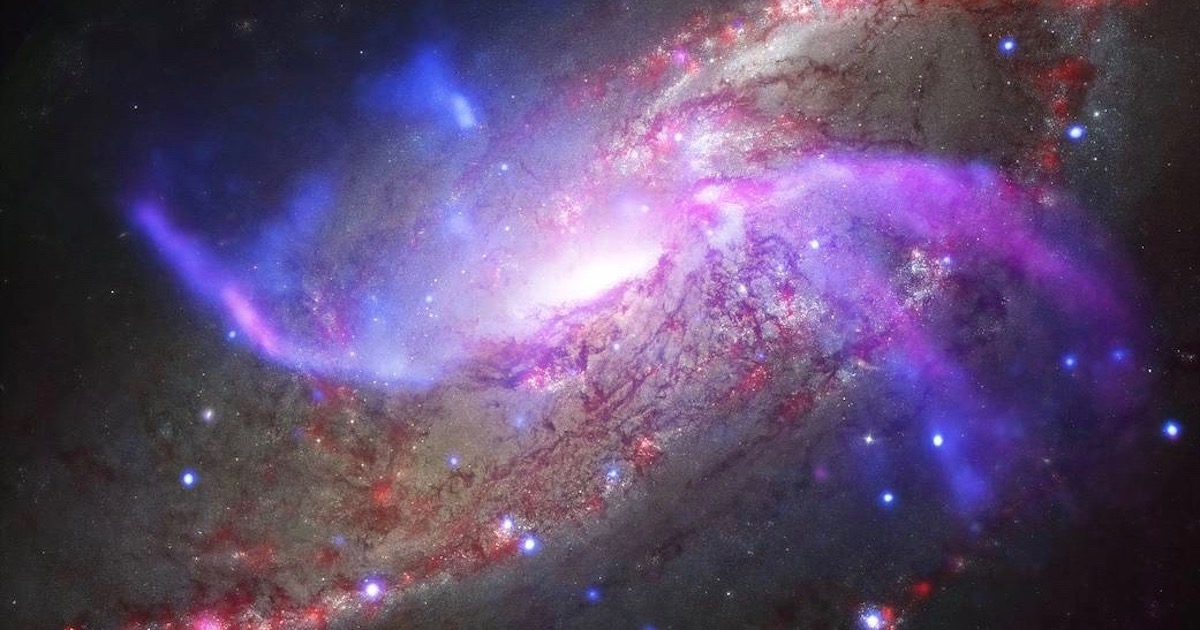 Faith & Science
Faith & Science
 Physics, Earth & Space
Physics, Earth & Space
Astrophysicist Asks: Did God Create the Universe?


Ethan Siegel is an astrophysicist who writes a lot for the public. I like his stuff; he explains interesting complex topics well. But his recent essay “Ask Ethan: Did God Create the Universe?” misses the mark in a sadly common way. He not only botches logic and the metaphysics. He botches science.
Seigel answers a reader’s question about the existence of God. The reader asks:
I am very interested in space and with who made us and what made us… what do you have to say about people who say that “God” made us?
Seigel is interested in this question too, and he replies (I summarize his argument — read his whole essay for details):
- You can ask a question whose answer is not only knowable, but already known.
- You can ask a question whose answer seems to be knowable if we had enough information, and that information exists in our Universe, even if we don’t have it yet.
- You can ask a question whose answer is not knowable, even if we were to obtain every quantum bit of information available in the entire Universe.
He insists that the third option is the God question. His arguments are intricate, but he concludes:
Did God, in some form, create the entire Universe? Not only don’t I know, but I daresay that no one does. Science cannot prove the existence of God, but it cannot disprove God either; it can only disprove the notion of a specific, poorly conceived God. If you claim that your God lives in the clouds, you can disprove that God by simply observing the clouds. If you claim that God lives in our Universe, you can disprove that God by observing the entire Universe. But if your God exists in an extra dimension, before cosmic inflation, or outside of space and time altogether, neither proof nor disproof is possible.
Siegel and Gould: Both Wrong
Siegel’s argument is a recapitulation of Gould’s “non-overlapping magisteria” argument, and like Gould, he’s wrong.
God’s existence can be known in a variety of ways. He can be directly experienced, as mystics do. He can be known intuitively. Some people know He exists, without effort or study. He is a part of their daily lives.
Those of us not graced with mystic experience or in-born awareness can know Him by science. That’s right, by science. I don’t mean by logic alone — in fact, He can’t be known by logic alone. And I don’t mean that God is a thing in the universe, like a bug or a galaxy. And I don’t mean that we can only know Him by violations of His laws — by miracles, for example.
Evidence and Reason
I mean we can know He exists in exactly the same way we know that real things that are outside of our sensory capabilities but can be inferred from scientific evidence and reason. We can know Him by scientific inference.
I know that the assertion that God can be known by the scientific method sounds like heresy — atheists are spitting their coffee now and plenty of theists would disagree with me, too. But it’s true, and the proof of God’s existence by natural science has a long and honorable pedigree.
As usual, Thomas Aquinas made the argument the most clearly. He based his metaphysics on the absolute distinction between essence and existence. That is, he insisted that you can’t know that a thing is based only on knowing what it is. I can describe my dog in any detail you want, but you can’t know whether my dog actually exists unless you have some existential — not logical — evidence for his existence. You can’t reason from logic to existence. Existence of some sort must be in the predicate of your line of reasoning.
This is the reason that Aquinas rejected the ontological argument for God’s existence. It is a purely formal argument, and you can’t conclude that anything exists just by logic. You must have existential evidence to reach existential conclusions.
The process of “existential evidence — logic — existential conclusion” is inferential reasoning, and it’s the scientific method. All science is inference about what exists based on evidence and reason.
Many very strong arguments for God’s existence are exactly scientific arguments. All of Aquinas’ Five Ways are inferences to God’s existence based on evidence and reason — all are scientific arguments.
A Sketch of Aquinas
Here’s a sketch of his First Way:
Evidence: Things change in nature.
Reason: Change is elevation of potency to act, and a thing cannot actuate its own potency because of the principle of non-contradiction. That which is changed must therefore be changed by another, and the Source of all change must be a First Mover Who is Pure Act.
Conclusion: The First Mover exists, and that is what all men call God.
Here’s a sketch of the theory of the Big Bang:
Evidence: There’s a red shift and we’ve found background microwave radiation.
Reason: Einstein’s equations of gravitation, when applied to these phenomena, point to a singularity at the beginning of the universe.
Conclusion: The Big Bang existed.
All scientific theories look like this. Exactly like this. We acquire physical evidence, reason in accordance with a logical or mathematical framework, and arrive at an existential conclusion.
God’s existence can be proven just like any scientific theory can be proven, or disproven. Siegel repeats the trope that God’s existence is in some way unknowable by the methods of science, but he’s utterly wrong.
Strong Evidence
In fact, the scientific evidence for God is very strong. The physical evidence is undeniable: things change in nature. The logic is rigorous — it’s Aristotelian and has never been refuted. And the conclusion follows inexorably. God (understood as First Mover) exists.
We know His existence as scientifically as we know anything in science that we can’t actually see with our senses. The evidence for God’s existence is stronger than any evidence for any scientific theory. Much stronger than quantum mechanics, much stronger than special or general relativity, much stronger than electromagnetism, etc. And immeasurably stronger than Darwinian evolution. “Things change and survivors survive” hardly qualifies as science at all, not because it’s wrong, but because it’s insipid. It’s banality masquerading as science.
No scientific theory has as much evidence to support it as the evidence for God — the evidence for change in nature, the logic as tight as Aristotle’s theory of potency and act and his principle of non-contradiction.
Natural theology is the science of God’s existence, and it’s a massive trove of evidence and reason of the first order. Most people, of course, don’t come to believe in God because of natural theology. They know Him and love Him in an experiential way. But He can also be known by science, and Siegel and the host of atheists (and many theists) who deny the overwhelming scientific evidence for God do the public a great disservice.
Image source: X-ray: NASA/CXC/Caltech/P.Ogle et al; Optical: NASA/STScI; IR: NASA/JPL-Caltech; Radio: NSF/NRAO/VLA.
